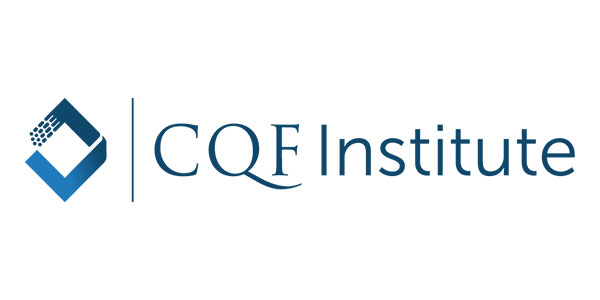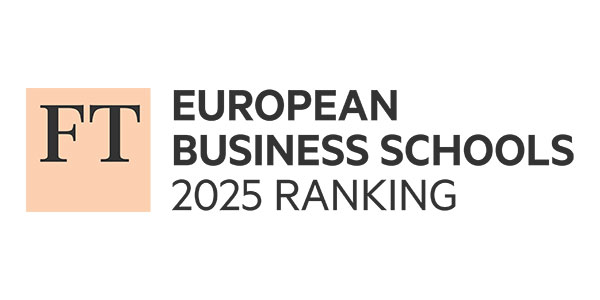MSc Finance & Management
ApplyKey facts
- Start date: September
- Accreditation: AACSB, EQUIS & AMBA
- Study mode and duration: 12 months full-time
Study with us
- gain knowledge of financial and management principles
- understand how organisations work
- develop technical and analytical skills
- opportunity to study at Toulouse Business School
- undertake a project in each subject area
- gain invaluable practical experience of the factors that drive today’s financial markets at AmplifyME Boot Camp
The Place of Useful Learning
UK University of the Year
Daily Mail University of the Year Awards 2026
Scottish University of the Year
The Sunday Times' Good University Guide 2026
Why this course?
If you're looking to develop your knowledge of finance and management simultaneously before embarking on your first professional business role, then the MSc Finance & Management is the course for you. If you're a graduate with some business experience, this qualification will provide the opportunity for you to further progress your career in a finance and/or management related role.
Jointly developed by the Department of Accounting & Finance and & the MBA Unit, this course is designed to give you a competitive edge no matter where your future business career takes you.
The programme offers ambitious graduates a thorough grounding in both financial and management principles. This in-depth understanding of both subject areas will be applicable to roles in any organisation, where a good knowledge of finance and management is required.
Industry professionals are invited on a regular basis to deliver guest lecturers in both finance and management areas.
Meet the Course Director
Course Director Dr Pratima Sambajee tells us more about the course.

Through the programme you'll:
The programme offers a unique chance to gain financial and managerial knowledge that can tackle sustainability challenges at both organisational and global levels.
Through modules such as International Financial Markets and Banking, and Professional Management Practice, you'll develop awareness and understanding of sustainable practices within financial markets and institutions, as well as the skills needed by managers to address complex sustainability issues in the global economy.
You'll develop versatile skills in both finance and management. Your academic and practical experiences on the programme will boost your employability by providing subject-specific expertise and adaptable skills that meet employer expectations in these sectors.
For instance, leadership, decision-making, and project management will be cultivated through the management pathway.
The finance pathway will offer you a broad set of transferable skills, including problem-solving, data and statistical analysis, model building, critical thinking, and effective communication.
This programme provides a solid understanding of how organisations operate and uses various case studies to help you develop the skills and awareness you need to work effectively within them.
You'll gain invaluable practical experience through initiatives like Amplify, a global financial trading and training company that has partnered with Strathclyde Business School to offer a unique learning opportunity.
You'll experience a real-life trading simulation from a leading provider of training programmes to the financial industry, offering students a valued and practical training experience.
This programme emphasises a deep understanding of both subject areas through reflective practice and collaborative problem-solving. Classes involve group work, case studies, and interactions with external industry professionals though guest lectures for example.
This approach fosters a bold and innovative method to help you develop strategic thinking and leadership skills in both finance and management areas.
All our students have access to Strathclyde Inspire, a sector-leading initiative that supports entrepreneurship and innovation across campus. This environment empowers students to develop entrepreneurial mindsets and lead transformational change in sustainable finance, whether through start-ups, intrapreneurship, or policy innovation.
What you'll study
You will gain a unique opportunity for acquiring knowledge on two equally fundamental and related functions in any organisation. To achieve this, this programme will give ample exposure to the essential areas in both finance and management in order to equip you with skills and knowledge in order to embark on a sustainable career in finance and management.
Semester 1 is designed to give you the fundamental understanding of finance and accounting with particular focus on international markets. You will also be introduced to management skills through the Professional Management Practice class. Semester 1 will extend your core skills, expand your knowledge of finance and accounting, expose you to a number of management and strategy related topics to deepen your understanding of how organisations pursue their goals. Finally, the third semester will you an opportunity to apply your acquired knowledge in a more practical way.
Study abroad
If you are interested in studying abroad, the ‘Managing in Europe’ elective gives you the opportunity to do attend classes taught at Toulouse Business School in France.
Research projects
During the summer, you will undertake two research projects (one in management, one in finance). This will require you to research an appropriate organisation using concepts relevant to the programme.
Guest lectures
During your study, you will have the opportunity to attend lectures delivered by guest speakers from companies such as Buffwine, Kaaliaer, Marketing Mavens and Swiss Eyewear Group.
Learning & teaching
Core and elective classes will be taught across two semesters running from September to December and January to March. Classes will be taught through a combination of lectures, workshops, case studies and problem solving activities. Research projects are undertaken during the summer months.
Assessment
Every class will either have a class test or assignment (e.g. group/individual projects and presentations) during semesters 1 and 2. Exams will take place at the end of each semester in December and April/May.
Certificate in Quantitative Finance
The Certificate in Quantitative Finance is the largest professional qualification in quant finance and is recognized by financial companies worldwide. Strathclyde Business School is one of the few Universities recognised by the CQF Institute and our students can register as free members and have the opportunity to access the latest CQF Institute membership resources, including events, research, careers tools, workshops and thought leadership content.

AmplifyME Boot Camp
You can gain invaluable practical experience of the factors that drive today’s financial markets as part of your Master course. Amplify, a global financial trading and training company, in collaboration with Strathclyde Business School, delivers a week-long Boot Camp. This provides you with the opportunity to experience a real-life trading simulation, covering multiple roles in the process.
Amplify is a leading provider of training programmes to the financial industry, and they offer our students the same analyst level practical training they deliver to their clients. Amplify’s clients include Bank of China, Goldman Sachs, HSBC and Bank of America.
Note: the provider of this boot camp may be subject to change.

Triple-accredited business school
Core classes
Accounting & Financial Analysis
Credits: 20
Teaching: 43 hours, which is split between lectures and workshops
Assessment: class test (30%) and final examination (70%)
The aim of this module is to provide you with an understanding of the basic principles of financial accounting and financial analysis, the ability to interpret financial statements and their use in assessing the financial position and performance of companies.
This module provides an introduction to the principles of accounting and the analysis of financial statements. It will enable you to prepare financial statements in accordance with International Financial Reporting Standards (IFRS) and to interpret and analyse these statements. Particular emphasis is placed on the accounting concepts and information employed in financial analysis and decision taking.
You'll develop the ability to prepare and interpret financial statements and construct cash forecasts. In addition, you'll develop an understanding of the demand and supply for accounting information; an appreciation of the role of financial analysis and analysts; and an awareness of the statistical characteristics of accounting numbers.
International Financial Markets & Banking
Credits: 20
Teaching: 43 hours, which is split between lectures and workshops
Assessment: class test (30%) and final examination (70%)
The aim of the module is to provide you with an understanding of the financial system and the roles and functions of financial markets and institutions. A particular emphasis is placed on understanding the roles of intermediaries such as banks and investment firms.
You'll develop an understanding of the various characteristics and roles of fixed income, equity, and foreign exchange markets. While some attention will be given to the UK financial markets, the global nature of financial markets will be widely discussed. This module aims to equip you with an awareness and understanding of financial markets and institutions in the context of the global economy. Particular emphasis will be placed on the role and contribution of the banking sector.
This module covers the reasons for, and nature of, of financial markets and institutions with a particular focus on banking, the global nature of these markets and their regulation.
Principles of Finance
Credits: 20
Teaching: 33 hours of lectures supplemented by 10 one-hour workshops
Assessment: class test (30%) and final examination (70%)
This module will provide an introduction to financial decision-making, and much of the relevant analysis will be developed from the standpoint of corporate finance. It'll explain how a company should decide on the investments to be undertaken to meet its objectives, generally assumed to be the maximisation of its value. It will be demonstrated that this will require a rate of return on its investments in excess of the return available in the capital market on equally risky financial investments. As a result, it will be necessary to develop an understanding of the capital market risk-return relationship. This will require an appreciation of the nature of risk and how this can be managed by the development of portfolios.
Even though the focus of the module will be on corporate finance, it'll also require an appreciation of how the risk-return tradeoff is determined in the capital market.
Professional Management Practice
This class develops your awareness and capabilities as a manager using a Personal Development Plan (PDP) process to help you critically evaluate the skills and attributes needed to be effective. Over the course of the year, workshops and exercises will help you identify and move towards fulfilling your potential.
Business Strategy
This class provides opportunities to explore, understand and apply the language of strategy and strategic management. By examining real-life organisations, you will develop your understanding of the forces within their contextual and transactional environments that influence their strategy, and by applying different strategic frameworks, develop the ability to critically analyse the strategic direction being adopted.
Finance classes
Choose at least one:
Textual Analytics for Accounting & Finance
Credits: 10
Assessment: final examination (50%) & individual assessment (50%)
This module aims to equip you with the skills and knowledge necessary to leverage unstructured textual data in a financial context. As the financial services sector increasingly makes use of data-driven insights, you will be taught methods through which textual information from sources such as corporate reports, news articles, and social media can be analysed.
You will gain hands-on experience with basic qualitative software such as NVivo, before covering traditional textual analysis methods (such as dictionary and machine learning methods) before more recent and advanced natural language processing (NLP) is introduced, including transformer-based models such as BERT and large language models (LLMs). Through these methods, you will be able to extract sentiment, detect trends, and identify key patterns in financial texts, evaluating the relative benefits and drawbacks of each approach (for example, more recent methods lack explainability but offer greater accuracy).
The module will place emphasis on developing both technical and analytical skills, encouraging you to critically evaluate the accuracy, relevance, and limitations of textual data analysis in decision-making processes. Additionally, the module will address ethical considerations and challenges related to bias, transparency, and data privacy in text analytics, specifically in relation to relevant UK guidelines and regulation.
By the end of the module, you will be able to apply text analysis techniques to real-world business scenarios, enhancing your ability to provide data-driven insights and solutions within various professional finance settings.
Behavioural Finance
10 credits
The aim of the module is to introduce you to the rapidly evolving area of behavioural finance and provide you with an understanding of the main ideas of behavioural finance. A particular emphasis is placed on understanding the roles of non-rational actions and the development of new financial models that incorporate these ideas.
You'll engage with up to date research and develop a critical view of existing and new finance theories and models. You'll develop an understanding of behavioural finance and an appreciation of its possible implications and applications.
This module provides you with an understanding of the main flaws of 'traditional' finance theory from a behavioural finance viewpoint. It will allow you to develop the ability to discuss issues arising from violations of the rationality assumption and will enable you to evaluate new theoretical models based on research in psychology.
The course will allow you to appreciate the role of new developments in finance and their possible implications for established views of the functioning of financial markets.
Derivatives
This class will provide you with a strong grounding in derivatives that may be used to manage the financial risks faced by individuals, financial institutions and business corporations.
Find out more in the course outline for Derivatives .
Fixed Income Analysis
Credits: 10
Teaching: 15 hours of lectures
Assessment: class test (30%) and final examination (70%)
While fixed income securities (bonds) have been traded for a far longer time than equities, it's only recently that the trading volume of these instruments has exceeded that of equities in many of the economies with highly developed capital markets. The bond markets for the last 25 years or so have been characterised by rapid innovation and the range of bonds now being traded is quite diverse. Any graduate of an MSc programme in Finance is expected to be familiar with the nature of the valuation of bonds.
This module will put the MSc courses at Strathclyde in a position to provide students with the opportunity to analyse bonds and the markets in which they are traded in more depth than is possible at the moment.
Equity Analysis
Credits: 10
Teaching: 15 hours of lectures
Assessment: class test (30%) and group assignment (70%)
This module focuses on equity valuation. The aim is to equip students with the knowledge and tools required for analysing the financial performance of firms and measuring their value. Students will be skilled in reviewing financial statements, estimating and assessing financial ratios and relevant accounting and economic data, and use this data for making forecasts and performing equity valuations. In addition, the module will cover the theoretical background for each valuation method and its application with real-life examples and case studies. Also, the module will examine the advantages and disadvantages of the main valuation models. Finally, the ultimate goal is for students to be able to perform and deliver an equity analysis report for any publicly listed firm.
Topics in Corporate Finance
Credits: 10
Teaching: 20 hours, which is split between lectures and workshops
Assessment: class test (30%) and final examination (70%)
The aim of this module is to discuss the different ways in which companies can raise funds, internally and externally, the role of capital markets in determining the terms on which funding will be available, the costs and risks of different sources of financing, and the role of taxation.
The module will cover the capital structure decisions of companies, the weighted average cost of capital, the dividend policy of companies, and share repurchases. This module builds on the introductory investment appraisal, risk, return and cost of capital material covered in the first-semester module Principles of Finance.
Management classes
Core:
These classes are chosen from a wide portfolio of elective subjects, which are revised annually to reflect the latest business thinking. In the past students have chosen from these classes. Choose at least one:
Managing in Europe
This class gives you the skills involved in managing people in Europe with a focus on cultural and knowledge issues as well as managing cross-cultural differences.
You'll be able to understand the European context in terms of human resource management and employment relations and manage effectively in this context. You'll also be able to adapt to different cultural environments and to manage effectively in an intercultural European context as well as a global context.
Marketing Management
The nature of how we think about ‘markets’, and the activities involved in trying to understand and communicate with customers, is changing rapidly. This class examines contemporary international practice, exploring the major concepts and techniques involved in the marketing planning process. It'll help you analyse what companies are offering, how customers behave, and ultimately identify what they need to do next to deliver on their objectives.
Project Management
This module aims to provide students with skills and knowledge relating to the use of practices in Project Management with particular respect to the project triple constraint: time, cost and quality.
New Venture Creation
This elective focuses on the investigation of the processes involved in creating a new business venture. This elective is very interactive in nature, requiring a high degree of involvement and commitment from students. It is multidisciplinary, requiring students to work to strict deadlines. It has a range of individual, group and plenary activities interspersed with short “taught” inputs that introduce different aspects of business planning will be presented in short taught inputs. Business plans, case studies, exercises, presentations and scenarios will be used to demonstrate the sequence of processes involved in business planning and associated issues. Participants will draw heavily on their functional business knowledge, applying it within the new venture context. The core activity will be a group project in which groups of 4-5 students will develop a plan for a new business.
Brand Management & Strategy
The mission of this elective is to provide a solid understanding and application in the strategies of global brand management. Key skills and theories of brand management will be presented and discussed in order to equip the learner to operate effectively in a global brand management environment. Students will gain a clear appreciation of the role of brand strategy within the corporation’s operating plan. This will entail consideration of environmental factors causing changes to the structure and composition of the brand portfolio as well as discussion of conceptual issues surrounding the strategic roles of brand management.
Strategic Financial Management
The class will consider a number of financial decisions of strategic importance, ranging from capital expenditure decisions to those concerned with the evaluation of the terms of a merger. These decisions will be explored through lectures, exercises and most importantly, case studies. The preparation of the case studies and the discussion of the analysis will provide the focus of the class.
Service Operations Simulation
This class provides MSc students with insights into ‘Service’ Operations Management, an area of study that is increasingly relevant to our graduates as compared with traditional/manufacturing operations management. Emerging concepts such as ‘services science’ emphasize the need to understand operations management within the service sector as a whole, while providing specific examples from different service sectors to illustrate the wide range of challenges within service industries. Aiming to be as practically useful as possible, the class provides both conceptual and technical perspectives on services. The technical perspective utilises discrete event simulation (DES) as a powerful tool to analyse service operations and facilitate decision making for service operations managers.
Games of Strategy
Games of strategy are ubiquitous throughout the corporate world, political environments, and in everyday life. Game theory provides a framework within which such strategic situations can be modelled and analysed. Through studying game theory and learning how to think strategically you can better optimize your well-being by trying to outmanoeuvre your adversaries by recognizing the fact that they are trying to outmanoeuvre you. A world of strategic thinking awaits that will transform the way you think about making decisions!
Global Business Environment
Business organisations and management decisions and actions exist in a complex, dynamic and often turbulent environment. This class will develop your understanding of the many dimensions and layers of the global business environment. It'll encourage you to recognise, understand and reflect upon the challenges and opportunities that various aspects of the business environment present to businesses, organisations and managers operating in an international context. The class will also introduce you to a range of useful theories, concepts and tools for analysing the business environment and give them an opportunity to apply these to ‘real world’ and hypothetical management scenarios.
Commercial Management in Projects
The module starts by looking at the main types of business vehicle that are used in the modern commercial environment. It goes on to explore how commercial contracts are formed and how the concept of agency can affect contracts. An exploration of common contractual problems follows.
The module then turns to examine practical skills: goal setting, time management and risk management (all of which are set in a theoretical context for participants). Finally, participants learn about the theory of negotiation and have the opportunity to bring all of their theoretical legal knowledge and practical skills to bear during a negotiation simulation.
Digital Transformation
The mega-trend of digital transformation is first examined to familiarise the student with the environmental drivers – social and technological – behind the rise of digital transformation.
Key technological advances powering digital transformation as a global phenomenon are introduced, including:
- elastic cloud computing
- big data & analytics
- the internet of things (IoT)
- artificial intelligence (AI)
- machine learning
Social implications for work and life are examined, and examples explored as to how digital transformation is already reshaping nations, sectors, organisations and individuals.
Strategic Thinking for Global Challenges & Opportunities
The principal aim of this course is to provide students with the ability to understand how changes in the global economic environment could impact upon future business models – and to gain experience in identifying the strategies that best respond to different situations. Learn about major ‘grand challenges’ and how they might impact upon your business model.
To provide students with a strong understanding of how an economy operates (and can impact upon individual businesses), and the role of policy in shaping economic outcomes, and in turn inform business strategy.
The Game Changer
This elective provides an understanding of how sports management practice can help any type of organisation. This is very different from other classes that we currently have for electives offerings. The key objective of MBA and MSc education to develop effective business leaders.
The aim of this class is to introduce the strategies, tools and techniques utilised by organisations in business and sport who not only improved performance over a sustained period of time – they changed the rules of the game in their industry or sector.
Prior to the start of the work on the projects classes are provided on research methodology for each project. These compulsory classes will provide the basis for the project work, the nature of research work in finance or accounting and the writing and structuring of research reports. The classes will not be assessed but attendance is compulsory.
Research projects
Project Methodology
This class introduces you to a range of different methodological approaches to conducting research and key issues researchers are commonly faced with (eg relevance of practitioner engagement, ethics). You'll be provided with a broad overview of research choices and issues from the perspective of Strathclyde staff representing each department in the Business Faculty who will present vignettes from their own research projects.
Project 1: Finance & Project 2: Management
These projects provide you with a valuable opportunity to apply what you have learned through the taught modules to a more practical situation. Working under the supervision of a faculty member, you'll spend time working individually on a topic of central interest in these areas. You'll learn the skills needed to develop a proposal and conduct an effective enquiry into your topic areas, producing reports that are both informed and practical.
Project subject matters are diverse, with a vast array of industries and topics to consider. While many projects can be subject specific, increasingly, many projects are undertaken with organisations, which allow you to learn more about a specific industry or work with a particular company.
Our experience shows that such interactions often act as a catalyst for future career opportunities. While you'll be encouraged to put forward your own suggestion of a company, we do have client projects on offer, so are more than happy to assist you in identifying appropriate clients and partnerships.

The University of Strathclyde and Glasgow are great places to come and study. I would highly recommend you pursue MSc Finance & Management if you want to explore different avenues in the financial and managerial world.
Strathclyde Business School
Strathclyde Business School was founded in 1948 and is a pioneering, internationally renowned academic organisation with a reputation for research excellence.
One of four faculties forming the University of Strathclyde, SBS is a triple-accredited business school (AACSB, EQUIS and AMBA) and was the first business school in Scotland to achieve this accolade in 2004.
The Business School is home to seven subject departments and a number of specialist centres, all of which collaborate to provide a dynamic, fully-rounded and varied programme of specialist and cross-disciplinary courses.
Strathclyde Inspire
At Strathclyde, we live and breathe entrepreneurship. The University of Strathclyde started life as a place of useful learning, an institution that wanted to make a difference through dong things innovatively, boldly and socially oriented; this founding mission has never been more relevant. Today, we continue to nurture generations of influencers, innovators and industry leaders, empowering our staff, students and alumni to embrace entrepreneurship, transforming their own lives and the lives of others.
Strathclyde Inspire supports and encourages entrepreneurship in all its forms, so whether you want to be more entrepreneurial in your approach to life, business and society, have an idea for a business, or are considering commercialising your research, we will support you at every stage of your journey.

The finance courses were impeccably structured, with insightful lectures and supplementary workshops that provided a comprehensive understanding. On the other hand, the management classes were interactive and project-focused, presenting real-life scenarios for us to tackle. This approach enhanced my problem-solving skills and allowed me to practically apply what I've learned.
MSc Finance & Management
Chat to a student ambassador
Want to know more about what it’s like to be a Strathclyde Business School student at the University of Strathclyde? A selection of our current students are here to help!
Our Unibuddy ambassadors can answer all the questions you may have about their course experiences and studying at Strathclyde, along with offering insight into life in Glasgow and Scotland.
Entry requirements
| Academic requirements/experience | Second-class Honours degree, or overseas equivalent (view the entry requirements for your country) in:
|
|---|---|
| English language requirements | Students whose first language is not English must have a minimum of 6.5 IELTS score, with no individual score lower than 5.5. Get more information about the English language requirements for studying at Strathclyde. |
Pre-Masters preparation course
The Pre-Masters Programme is a preparation course held at the University of Strathclyde International Study Centre, for international students (non-UK/Ireland) who do not meet the academic entry requirements for a Masters degree at University of Strathclyde.
Upon successful completion, you'll be able to progress to this degree course at the University of Strathclyde.
Fees & funding
All fees quoted are for full-time courses and per academic year unless stated otherwise.
Fees may be subject to updates to maintain accuracy. Tuition fees will be notified in your offer letter.
All fees are in £ sterling, unless otherwise stated, and may be subject to revision.
Annual revision of fees
Students on programmes of study of more than one year (or studying standalone modules) should be aware that the majority of fees will increase annually.
The University will take a range of factors into account, including, but not limited to, UK inflation, changes in delivery costs and changes in Scottish and/or UK Government funding. Changes in fees will be published on the University website in October each year for the following year of study and any annual increase will be capped at a maximum of 10% per year. This cap will apply to fees from 2026/27 onwards, which will not increase by more than 10% from the previous year for continuing students.
| Scotland | £16,050 |
|---|---|
| England, Wales & Northern Ireland | £16,050 All home fee status candidates who are given an offer of study on this programme, will be automatically offered our SBS Masters scholarship for Home/UK students. |
| Republic of Ireland |
If you are an Irish citizen and have been ordinary resident in the Republic of Ireland for the three years prior to the relevant date, and will be coming to Scotland for Educational purposes only, you will meet the criteria of England, Wales & Northern Ireland fee status. For more information and advice on tuition fee status, you can visit the UKCISA - International student advice and guidance - Scotland: fee status webpage. Find out more about the University of Strathclyde's fee assessments process. |
| International | £32,800 All international candidates who are given an offer of study on this programme, will be automatically offered our SBS International Masters scholarship, which is £8,000 for this programme. A separate application is required for our higher value Dean’s Excellence Award. |
| Additional costs | Course materialsTextbooks do vary in price from around £40 to £100. The majority are provided free in the library or via the Virtual Learning Environment platform. For budgeting purposes, we recommend allowing £200 per academic year for books. International studentsInternational students may have associated visa and immigration costs. Please see student visa guidance for more information. Other costs
|
| Available scholarships | Take a look at our Business School scholarships. |
Please note: the fees shown are annual and may be subject to an increase each year. Find out more about fees.
How can I fund my course?
Scottish postgraduate students
Scottish postgraduate students may be able to apply for support from the Student Awards Agency Scotland (SAAS). The support is in the form of a tuition fee loan and for eligible students, a living cost loan. Find out more about the support and how to apply.
Don’t forget to check our scholarship search for more help with fees and funding.
Students coming from England
Students ordinarily resident in England may be to apply for postgraduate support from Student Finance England. The support is a loan of up to £10,280 which can be used for both tuition fees and living costs. Find out more about the support and how to apply.
Don’t forget to check our scholarship search for more help with fees and funding.
Students coming from Wales
Students ordinarily resident in Wales may be to apply for postgraduate support from Student Finance Wales. The support is a loan of up to £10,280 which can be used for both tuition fees and living costs. Find out more about the support and how to apply.
Don’t forget to check our scholarship search for more help with fees and funding.
Students coming from Northern Ireland
Postgraduate students who are ordinarily resident in Northern Ireland may be able to apply for support from Student Finance Northern Ireland. The support is a tuition fee loan of up to £5,500. Find out more about the support and how to apply.
Don’t forget to check our scholarship search for more help with fees and funding.
International students
We've a large range of scholarships available to help you fund your studies. Check our scholarship search for more help with fees and funding.
Careers
As a graduate, you will be well equipped with the necessary knowledge and skills to develop your career in both the finance and management sectors. Students recently graduating from the course have secured jobs including:
- Financial Analyst
- Personal Financial Advisor
- Financial Manager
- Management Consultant
- Risk Manager
- Security Analyst
- Corporate Credit and Business Analyst
- Credit Analyst
- Financial Researcher
- Investment Associate
- Project Manager
Recent employers
Our recent graduates have joined the following companies:
- Deloitte
- Morgan Stanley
- PwC
- Aviation Power & Marine
- Bank of Tokyo-Mitsubishi UFJ (BTMU)
- Kasikorn Bank
- Ric Capital
- Shanghai Jiangshi Investment
Apply
For information and guidance on the application process, take a look at our How to Apply web page.
Start date: Sep 2026
Finance and Management
Contact us
SBS Postgraduate Admissions
Telephone: +44 (0)141 553 6105 / +44 (0)141 553 6116
Email: sbs.admissions@strath.ac.uk
Strathclyde Business School, University of Strathclyde
199 Cathedral Street
Glasgow
G4 0QU
Glasgow is Scotland's biggest & most cosmopolitan city
Our campus is based right in the very heart of Glasgow. We're in the city centre, next to the Merchant City, both of which are great locations for sightseeing, shopping and socialising alongside your studies.
Have you considered?
We've a range of postgraduate taught and Masters courses similar to this one which may also be of interest.





